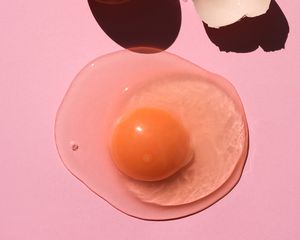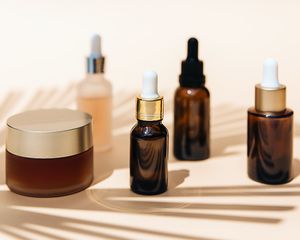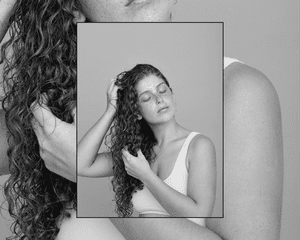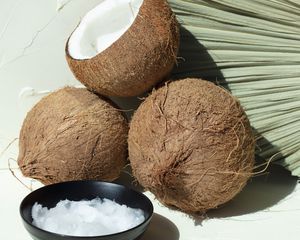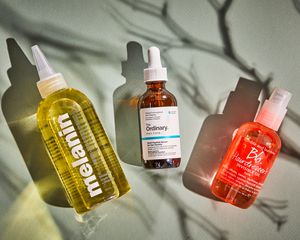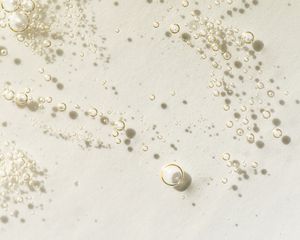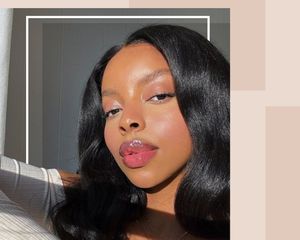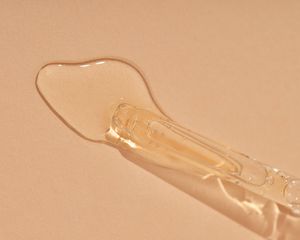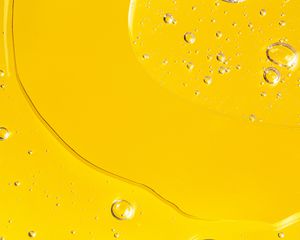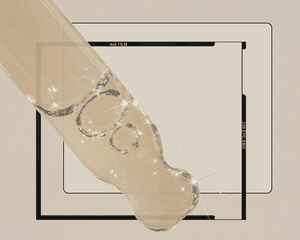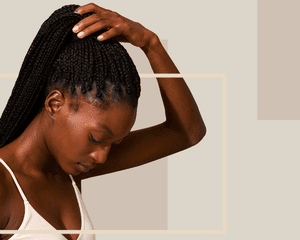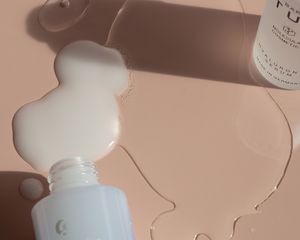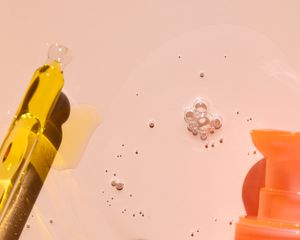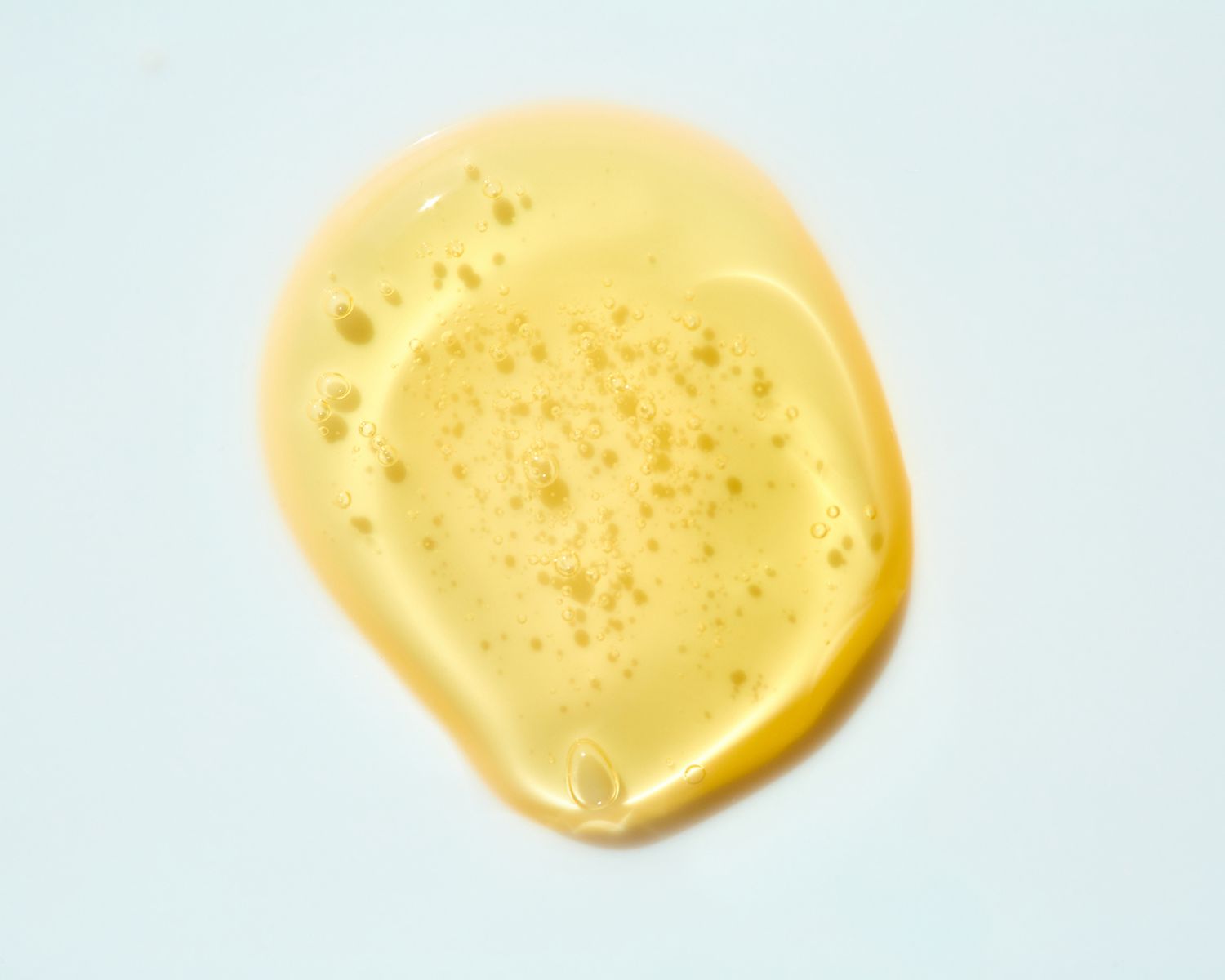
Ohlamour Studio/Stocksy
Hair oils may be a dime a dozen, but that doesn't stop us from loving them and their potential to foster healthy, luscious locks. If you're a fan of coconut oil and the effects it has on your strands, then monoi oil may just catch your eye.
"A centuries old remedy from Tahiti, monoi oil is made from soaking the petals of Tahitian gardenia in coconut oil," board-certified dermatologist Azadeh Shirazi, MD, tells us. "It’s considered a perfume oil as it is fragrant and used to moisturize, nourish, and add shine to hair. [A] majority of the benefits are from the coconut oil."
Coconut oil has some major benefits for hair and skin, including moisturizing effects from healthy omega-3 fatty acids and vitamin E, deep hydration that can help repair damaged hair, and strength and nourishment that can improve overall scalp health, to name a few.
To further understand monoi oil and its benefits, we had Shirazi and celebrity hairstylist Nicholas Taylor share everything you need to know. Ahead, we break down monoi oil benefits and how to use it to nourish hair.
Meet the Expert
- Azadeh Shirazi, MD, is a board-certified dermatologist specializing in medical, surgical, and cosmetic dermatology.
- Nicholas Taylor is a celebrity hairstylist, a brand ambassador and regional stylist for Oribe, and a Redken authority.
Monoi Oil
Type of ingredient: Hydrator
Main benefits: Reduces frizz, restores moisture to scalp, maintains healthy hair
Who should use it: Monoi oil is generally safe for all hair, but those with damaged hair may find it most beneficial. You should also note that monoi oil is fragranced.
How often can you use it: Shirazi suggests using it sparingly on damp hair once or twice a week.
Works well with: Applying hyaluronic acid prior to monoi oil can attract and retain moisture, in turn enhancing hydration.
Don’t use with: It's best to avoid other fragrant products or oils to avoid potential irritation.
Benefits of Monoi Oil
The benefits of monoi oil are very similar to coconut oil, thanks to being a modified version of the latter. "People are loving monoi oil because it can be used for intense moisture head to toe and it provides a pollution barrier for your hair and skin," Taylor says.
- Restores moisture: Studies show that coconut oil penetrates the hair shaft, resulting in better protection from damage by hygral fatigue. Coconut oil plays the same role within monoi oil, and Shirazi says that "using monoi oil may help restore moisture and nutrients and help strengthen the hair shaft."
- Reduces frizz: The hydrating properties of monoi oil result in less frizz and more shine, both experts share. A little goes a long way, but can result in a healthy hair glow.
- Promotes overall hair health: As Taylor notes above, monoi oil provides a pollution barrier for the hair that can help promote hair health. It strengthens and nourishes the hair, encouraging a happy, hydrated scalp and strands.
Hair Type Considerations
Dry, malnourished hair will typically see the most benefits from a hair oil, including monoi oil. "I mainly use monoi oil two ways," Taylor notes. "One as an oil treatment when I’m trying to restore hydration, and the other as a scalp treatment for my clients who experience itchy dry scalp, especially in the wintertime. You can also use monoi oil on its own, the same way you would use coconut oil."
While monoi oil is typically safe for most hair types, it's important to note that some hair types will want to avoid using it. "Those with sensitive skin, as it is a perfume oil and many people with sensitive skin can develop reactions to fragrance," Shirazi says. "As an oil, it may flare up skin conditions like seborrheic dermatitis, dandruff, or folliculitis, breakouts in the scalp. While its effects are assumed to be similar to those of coconut oil, more research needs to be done to confirm its influence on skin and hair health. As with any alternative skin or hair care product, consult a doctor or dermatologist before using. If you begin to experience any adverse reactions, stop use immediately."
How To Use Monoi Oil for Hair
Before figuring out exactly how to use monoi oil for hair, the experts note that it's important to understand how often it should be applied. "Monoi oil is generally safe, however, it’s perfumed," Shirazi says. "Continued or consistent use could potentially lead to allergic reactions over time in some skin types. I suggest using it sparingly on damp hair once or twice a week. Allergic reactions may be delayed and show up as peeling, dry, itchy, red skin."
Once you've patch-tested and confirmed monoi oil works for you, understanding application is the key to shiny, nourished hair. "It’s best to avoid application to the hair root," Shirazi shares. "Hair oils are best applied to the ends of the hair shaft, as our scalp naturally produces oil. Oils on the scalp can flare up skin conditions such as seborrheic dermatitis and folliculitis. I recommend applying it to damp hair. It’s best used after cleansing and shampooing. Nighttime application is often best to allow overnight hydration."
For specific treatments, Taylor has two go-to uses with his clients. His first suggestion is a hot oil treatment. "Place your tube or container of oil in hot water for three to four minutes," Taylor says. "Brush in [the] oil from roots to ends and leave on for at least 15 minutes. Shampoo, condition, and style. Do this twice a month or whenever you need intense hydration."
His second go-to use is a scalp treatment. "For scalp treatments, I apply monoi oil at the scalp, lightly steam the scalp for five minutes, and wash with cold water," he says. Both experts recommend one product in particular, the Carol's Daughter Monoi Oil Sacred Strengthening Serum ($30).

